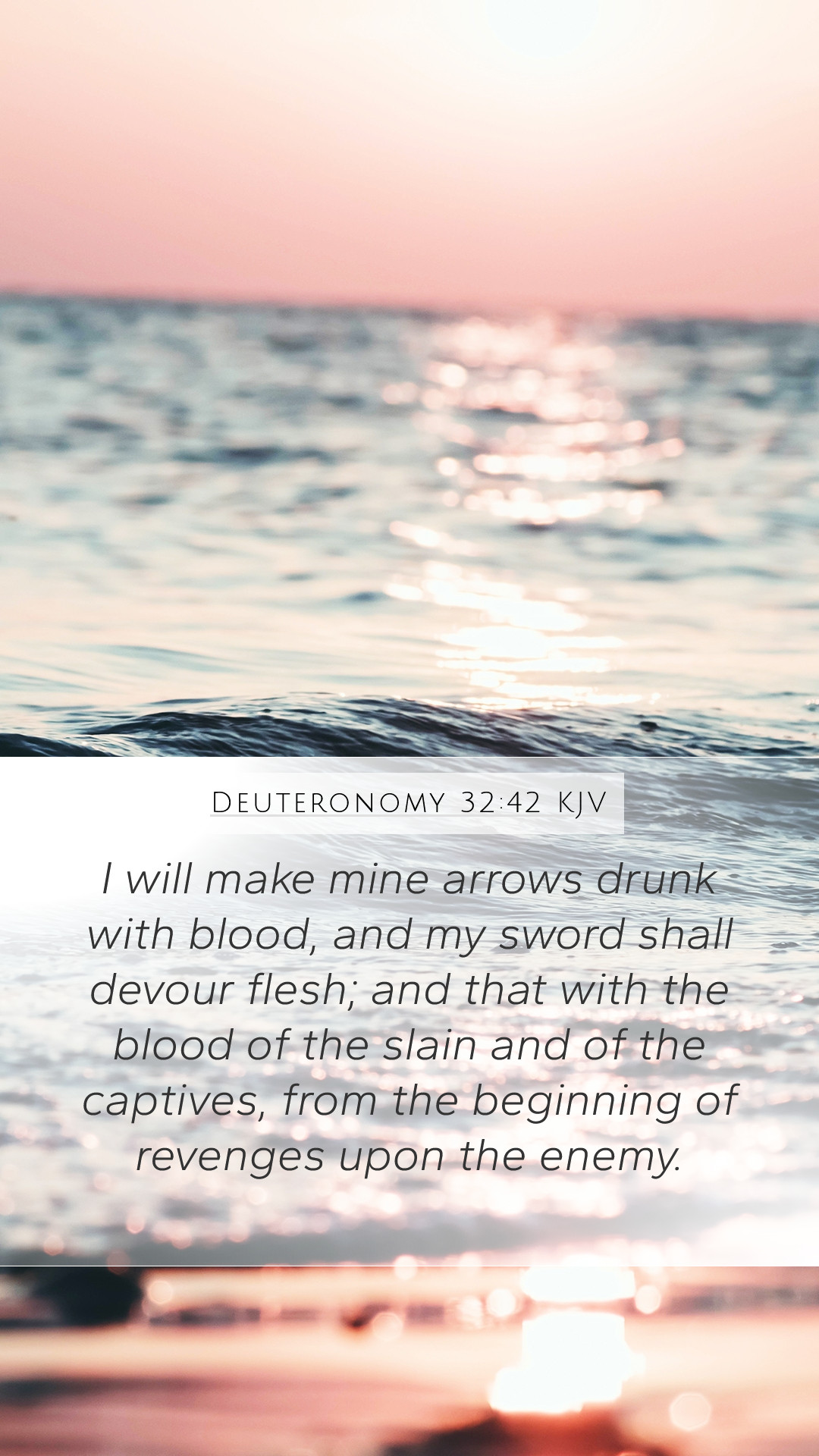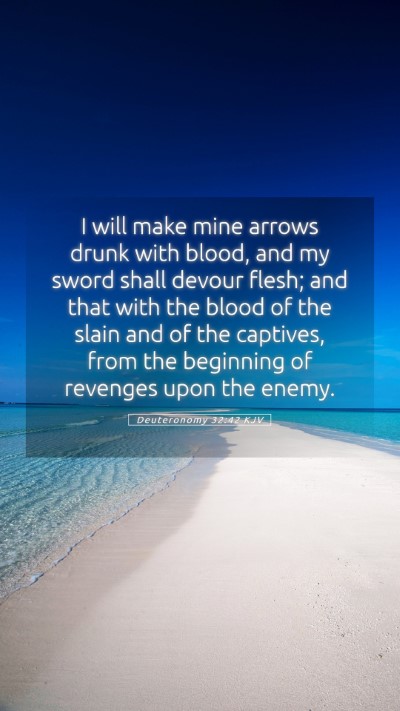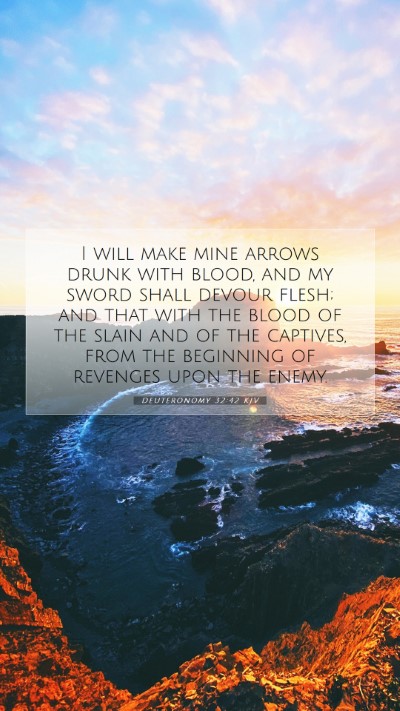Understanding Deuteronomy 32:42
Bible Verse: “I will make mine arrows drunk with blood, and my sword shall devour flesh; and that with the blood of the slain and of the captives, from the beginning of revenges upon the enemy.” (Deuteronomy 32:42)
Overview of Deuteronomy 32:42
Deuteronomy 32:42 serves as a pivotal point in a song of Moses that outlines the consequences of Israel’s disobedience and the justice of God against His enemies. The verse uses vivid imagery of divine retribution and warfare. Understanding this verse involves exploring the themes of judgment, warfare, and the power of God.
Insights from Public Domain Commentaries
This analysis integrates insights from several notable commentaries to provide a well-rounded interpretation of Deuteronomy 32:42.
Matthew Henry's Commentary
Henry interprets this verse to reflect the severity of God's vengeance on His enemies. He emphasizes the metaphor of arrows being 'drunk with blood' as symbolizing the intense judgment that God will unleash upon those who oppose Him. This image not only conveys God's might but also serves to remind Israel of the consequences of turning away from God. Through this, Moses illustrates that God will not overlook injustice, and He will defend His covenant people.
Albert Barnes' Notes
Barnes elaborates on the metaphorical language used in this verse. He points out that the terms 'drunk with blood' and 'devour flesh' depict a total annihilation of the enemy. This assertion indicates that God's retribution is not merely punitive but transformative—it seeks to restore balance by addressing the evil done against His people. Furthermore, Barnes stresses that the vengeance outlined must be seen in light of a righteous God who is committed to justice.
Adam Clarke's Commentary
Clarke provides a detailed contextual discussion surrounding this verse, noting that it serves as a poignant reminder of the reality of divine justice. He interprets the 'blood of the slain' as representing both physical and spiritual consequences of sin, demonstrating that the consequences of actions extend beyond mere physical death. Clarke stresses the significance of this verse in the broader narrative of Scripture that emphasizes God’s ultimate authority and the fulfillment of divine prophecies regarding retribution against sin.
Key Themes and Concepts
- Divine Justice: The verse speaks to God's commitment to holding accountable those who act wickedly. It underscores the belief that God’s justice will prevail.
- Imagery of War: The graphic language emphasizes the seriousness of spiritual warfare and the fierce opposition against the enemies of God.
- Consequences of Sin: This passage serves as an admonition to Israel, reminding them of the repercussions of straying from God's ways, particularly in how it invites divine wrath.
Significance of Deuteronomy 32:42 for Today's Believers
For contemporary readers, Deuteronomy 32:42 invites reflection on God’s justice in a world filled with moral conflict. It serves as a reminder of the cosmic struggle between good and evil, urging believers to remain steadfast in faith. The warning against sin remains relevant, compelling the faithful to examine their lives in relation to God’s commandments.
Cross References
- Romans 12:19: “Vengeance is mine; I will repay, saith the Lord.”
- Hebrews 10:30: “For we know him that hath said, Vengeance belongeth unto me, I will recompense, saith the Lord.”
- Isaiah 34:6: “The sword of the Lord is filled with blood.”
Conclusion
Deuteronomy 32:42 encapsulates a powerful message about God's judgment and the seriousness of sin. Understanding this verse through a combination of commentaries sheds light on its meaning and significance within the broader narrative of scripture. It aids in grasping the reality of divine justice, the nature of God, and the call to faithfulness among believers.


